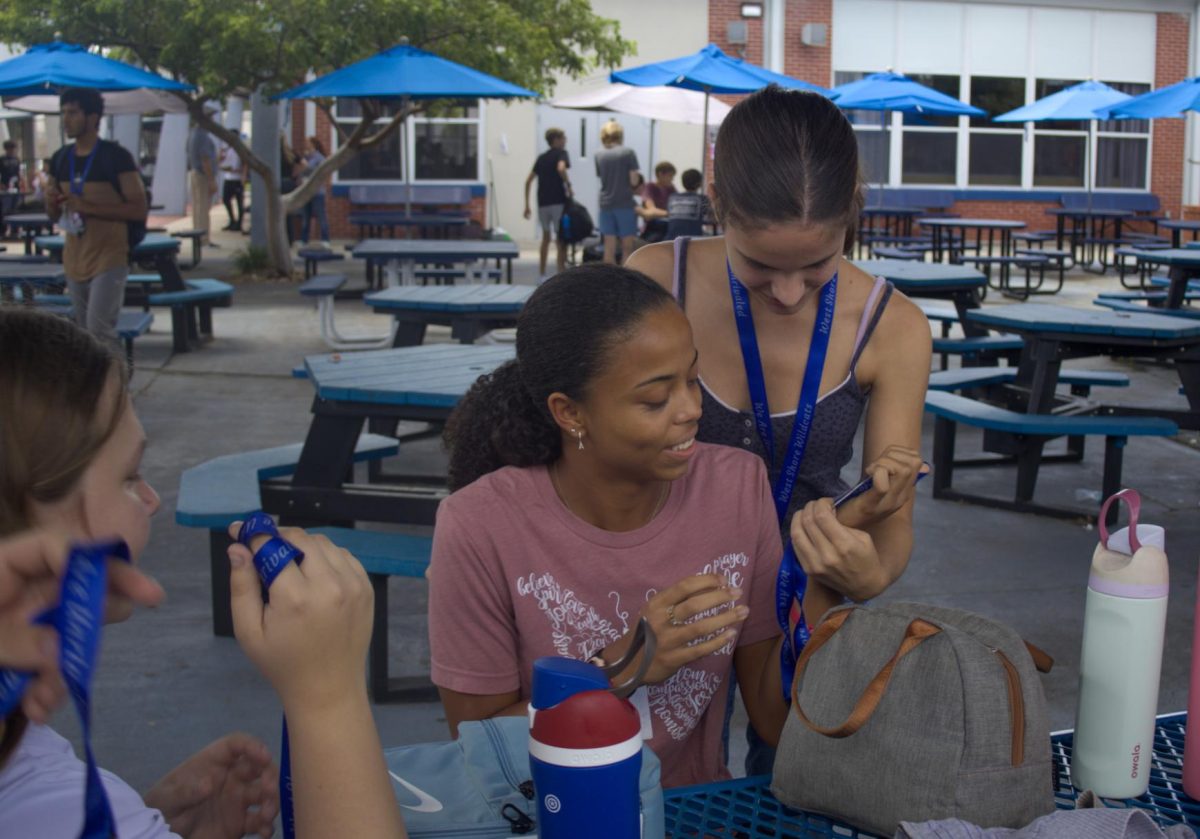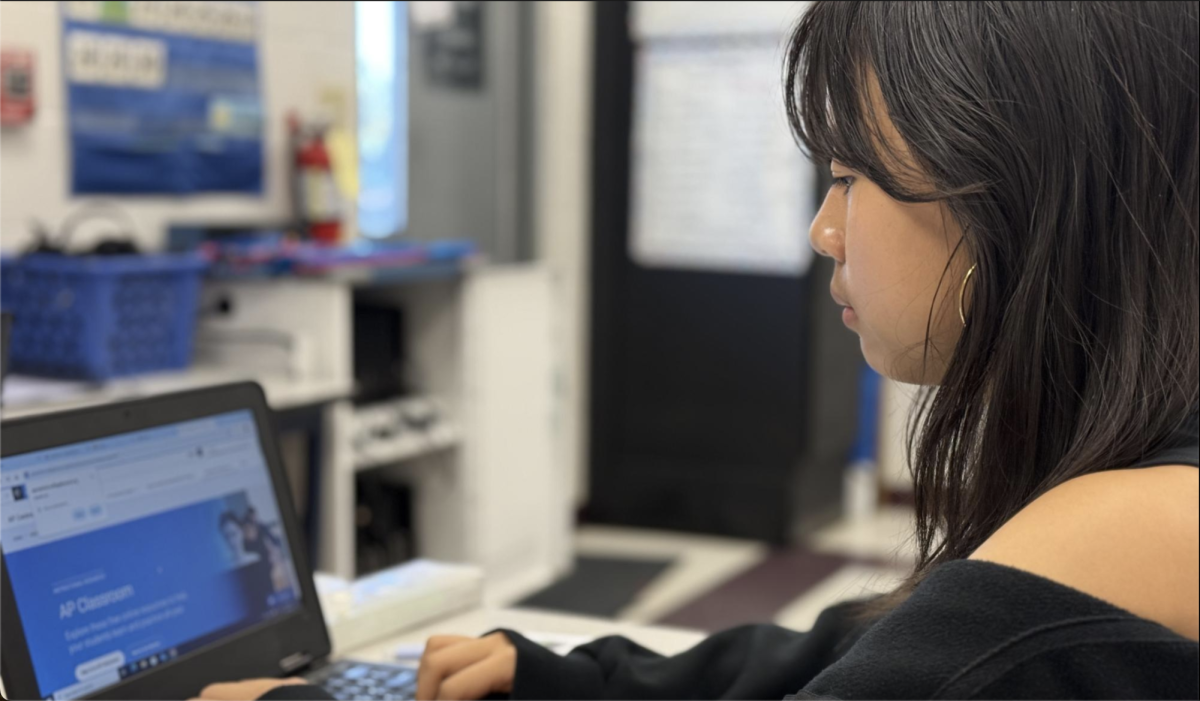Sophomore Jayden Collins wakes up at 5 a.m. to start his day, which consists of cross-country practice, school, bagging groceries at Publix and completing late-night homework. Despite the heavy workload, Collins finds it comfortable. In September, Florida proposed House Bill 49 that allows minors ages 16 and 17 to work unrestricted hours any day of the week, giving students like Collins more freedom in how they balance their school and work schedules.
“I think the legislation would be a good thing,” Collins said. “Some people’s schedules aren’t that busy so they can balance more work, and having a job has helped and taught me lots of important skills.”
Maintaining a job in high school takes up time, an average of 17 hours a week, according to the Federal Highway Administration, hours that go directly towards a source of income for students. Additionally, College Board suggests maintaining a job increases confidence and time management skills.
“Working at Publix has taught me a lot about how to handle stressful situations and manage my time,” Collins said. “I believe it’s helped me mature quite a bit. I’ve learned a lot about self-control and patience.”
The bill is sponsored by Linda Chaney, who represents parts of Hillsborough and Pinellas in the Legislature. It opens opportunities for students to work more, but according to Jennifer Sherer, director of the State Worker Power Initiative at Economic Policy Institute and co-author of three papers on recent child labor law changes, students working more can put their academics at risk. This legislation would be the first rollback of child labor laws since their implementation a century ago.
“Those laws from 100 years ago were designed to make sure that every child, no matter what their background was, had an equal opportunity to grow up safely and complete their schooling,” Sherer said. “Employers assigning teens who are still enrolled in school to later and longer hours, regardless of whether school is in session, is a big concern. We know based on research that if kids are still trying to complete their schoolwork and graduate from high school, any work over 20 hours a week raises the likelihood that they could be at risk of not graduating.”
H.B. 49 would leave students more responsible for their time management. Senior Andrew Breidenbach, who works at Crumbl Cookies, said his homework and work hours often overlap.
“Typically, my work is pretty good at scheduling me only on the days that I choose to,” Breidenbach said. “Although some teachers will have assignments that you have to do over the weekend, I work all weekend. I don’t get a chance to do homework, and I only get to relax on some Sundays when we’re closed.”
Senior Ethan Bergman said he has similar issues when balancing working at Chick-fil-A and schoolwork.
“I always work right after school, so I don’t get off too late to do my homework,” Bergman said. “But honestly, after work, a lot of times I’m pretty tired. I’ll usually have to push my homework over to the next day just because I want to go to bed. With the new proposal, I wouldn’t take any more hours. I’m already kind of stressed as it is.”
Bergman said he believes the stress of work can bleed into school.
“When I have a week of school that I know is going to be more vigorous, a lot of like tests or projects, and then I see that I get scheduled, it does make me overwhelmed because I know I’m going to have less time and less energy to put into the assignments,” he said.
On top of the increasing workload that comes with maintaining a job, Breidenbach said employers might not always have students’ best interests at heart when it comes to scheduling work hours.
“Teens want to be nice to adults because you go to West Shore and you’re surrounded by adults who have your best interests in mind,” Breidenbach said. “You get in the workforce, and you think, ‘This is an adult and they must care about me because I’m still a child,’ but they aim to make a profit.”
Junior Sean Doran is a server at Siam Orchid. He has five years of experience working at his parents’ restaurants — experience he sees as valuable to his personal development.
“Having my parents as my employers helps makes my job a lot more flexible,” Doran said. “Working as a server is still stressful in such a busy restaurant. It’s in those really stressful days where I learn to manage my time best: a valuable skill I think everyone should have and something people could utilize from this proposal.”
The proposed law opens up students to more opportunities for employment but also opens up employers to hire more teenagers for mostly minimum-wage jobs, according to ZipRecruiter.com.
“Support for these kinds of changes as represented by industry groups that are interested in expanding their access to a pool of low-wage labor, and they see youth and teenagers as one source of that for them,” Sherer said.
According to Zippia.com, 6 million teenagers 16-19 are employed, making up large portions of the food-industry jobs and a majority of all cashier jobs in the U.S. These industries can violate labor laws by not providing minors with 30-minute breaks when working more than four hours or assigning more hours than the current state limit.
“We’re seeing an uptick in child labor violations around the country but also in Florida,” Sherer said. “To some extent, some of the industry groups that are pushing for these kinds of child labor changes are making it clear that they’d like to legalize some of the violations that I think in some cases they know are already occurring in some of the workplaces that they represent.”
Schoolwork might benefit students more in their future work lives than maintaining a job in high school, according to Sherer’s research.
“Completing high school is by far the biggest factor in determining what kinds of job opportunities and income levels over a lifetime people have to pursue,” Sherer said. “[Not graduating] early in life can jeopardize somebody’s overall earnings across their whole career through adulthood.”
Sherer said this “[was] not something that she thought almost anyone expected to see in the year 2023.”
“Responsible employers, educators, public health, people who understand what the implications and risks here are are shocked to see that in the 21st century, states in the United States are considering opening up the door to hazardous child labor or legalizing excessive hours for teens who are still enrolled in school,” Sherer said. “Chipping away at that sets us backward on [the goal to help children complete schooling.]”
Maintaining a job rather than finishing school may end up being far riskier, luring kids away from focusing on education, according to Assistant Principal Glenn Webb.
“If a company were to be predatory in nature and pull kids out of education and give them jobs with high-paying jobs without a high school diploma, they kind of have their hooks in you because you can’t go somewhere else,” he said.
In the past two years, 14 states other than Florida have proposed or passed bills to weaken child labor laws.
“There’s very clear pattern going on,” Sherer said. “These [bills] look a little bit different depending on what the existing state standards might be, although Florida is an extreme outlier because they’re just wiping away all the standards for 16-and-17-year-olds, treating them like adults.”
Bergman said the regulations the proposed bill will weaken are important to balancing work and school.
“I think that like them trying to take away the regulations is kind of stupid,” Bergman said. “They should be in place. I’ve known people who’ve been overworked and that work and school together has been stressful for them.”
Webb said whether or not the proposed law passes, teenagers will still have to carefully choose how they manage their work time and school time, and most importantly, their futures.
“There’s a fine line that we’re walking here, and the well-being of our kids is at stake,” Webb said. “There’s so many life skills that you learn, problem solving, organization, critical thinking skills, and school’s a place to practice that without the negative consequences of losing a job.”


![Sophomore Isabelle Gaudry walks through the metal detector, monitored by School Resource Officer Valerie Butler, on Aug. 13. “I think [the students have] been adjusting really well," Butler said. "We've had no issues, no snafus. Everything's been running smoothly, and we've been getting kids to class on time.”](https://westshoreroar.com/wp-content/uploads/2025/08/IMG_9979-1200x800.jpg)






































